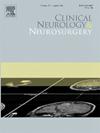FcRn抑制剂在重症肌无力患者中的疗效和安全性:一项最新的系统综述和荟萃分析
IF 1.8
4区 医学
Q3 CLINICAL NEUROLOGY
引用次数: 0
摘要
背景重症肌无力(MG)是一种慢性、复杂的自身免疫性疾病,其特征是产生破坏神经肌肉连接的自身抗体。阻断新生儿Fc受体(FcRn)增强IgG分解代谢,提供了一种新的治疗方法。方法检索spubmed、Embase和Cochrane图书馆截至2025年2月的评估MG患者FcRn抑制剂的随机对照试验。随机效应模型计算合并风险比(RR)和平均差异,95% %置信区间(CI)。结果共纳入8项随机对照试验(RCTs)的873例患者。与安慰剂相比,FcRn抑制剂显著降低重症肌无力日常生活活动(MG-ADL)评分(MD为- 1.45[95 % CI, - 1.91至- 0.99];P <; 0.00001),定量重症肌无力(QMG)评分(MD = - 2.33[95 % CI, - 3.57 ~ - 1.09];P = 0.0002),重症肌无力综合评分(MGC) (MD = - 2.96[95 % CI, - 4.29 ~ - 1.63];P & lt; 0.0001)。FcRn抑制剂改善MG-ADL反应率(RR = 1.60[95 % CI, 1.27-2.02];P <; 0.0001),重症肌无力生活质量(MGQoL15r)评分(MD = - 2.18[95 % CI, - 3.35 ~ - 1.00]; = 0.0003页)。FcRn抑制剂组的严重不良事件(32/519)低于安慰剂组(39/397)。亚组分析显示,rozanolizumab和Nipocalimab可改善MG-ADL评分,但应答率较低。此外,rozanolizumab显著提高了MGC评分,但有更多的不良事件。结论fcrn抑制剂对MG有良好的疗效和安全性,其中依加替莫德和尼波卡利单抗疗效强,且无增加风险。需要进一步的研究来评估长期结果和优化治疗。本文章由计算机程序翻译,如有差异,请以英文原文为准。
Efficacy and safety of FcRn inhibitors in patients with Myasthenia gravis: An updated systematic review and meta‑analysis
Background
Myasthenia gravis (MG) is a chronic, complex autoimmune disorder characterized by the production of autoantibodies that destroy neuromuscular junctions. Blocking the neonatal Fc receptors (FcRn) enhances IgG catabolism, offering a novel therapeutic approach.
Methods
PubMed, Embase, and the Cochrane Library were searched up to February 2025, for RCTs evaluating FcRn inhibitors in MG. A random effects model to calculate pooled risk ratios (RR) and mean differences with 95 % confidence intervals (CI).
Results
873 patients from 8 randomized control trials (RCTs) were analyzed. Compared to placebo, FcRn inhibitors significantly reduced Myasthenia Gravis Activities of Daily Living (MG-ADL) scores (MD of −1.45 [95 % CI, −1.91 to −0.99]; P < 0.00001), Quantitative Myasthenia Gravis( QMG) scores (MD = −2.33 [95 % CI, −3.57 to −1.09]; P = 0.0002), and Myasthenia Gravis Composite (MGC) scores (MD = −2.96 [95 % CI, −4.29 to −1.63]; P < 0.0001). The FcRn inhibitors improved MG-ADL responder rates (RR = 1.60 [95 % CI, 1.27–2.02]; P < 0.0001), and Myasthenia Gravis Quality of Life (MGQoL15r) scores (MD = −2.18 [95 % CI, −3.35 to −1.00]; P = 0.0003). Serious adverse events were lower with the FcRn inhibitors (32/519) than the placebo (39/397). Subgroup analysis revealed that Rozanolixizumab and Nipocalimab improved MG-ADL scores, but had inferior responder rates. Additionally, Rozanolixizumab significantly improved MGC scores but had more adverse events.
Conclusion
FcRn inhibitors demonstrated good efficacy and safety in MG, with efgartigimod and nipocalimab showing strong efficacy without added risk. Further research is required to evaluate long-term outcomes and optimize treatment.
求助全文
通过发布文献求助,成功后即可免费获取论文全文。
去求助
来源期刊

Clinical Neurology and Neurosurgery
医学-临床神经学
CiteScore
3.70
自引率
5.30%
发文量
358
审稿时长
46 days
期刊介绍:
Clinical Neurology and Neurosurgery is devoted to publishing papers and reports on the clinical aspects of neurology and neurosurgery. It is an international forum for papers of high scientific standard that are of interest to Neurologists and Neurosurgeons world-wide.
 求助内容:
求助内容: 应助结果提醒方式:
应助结果提醒方式:


